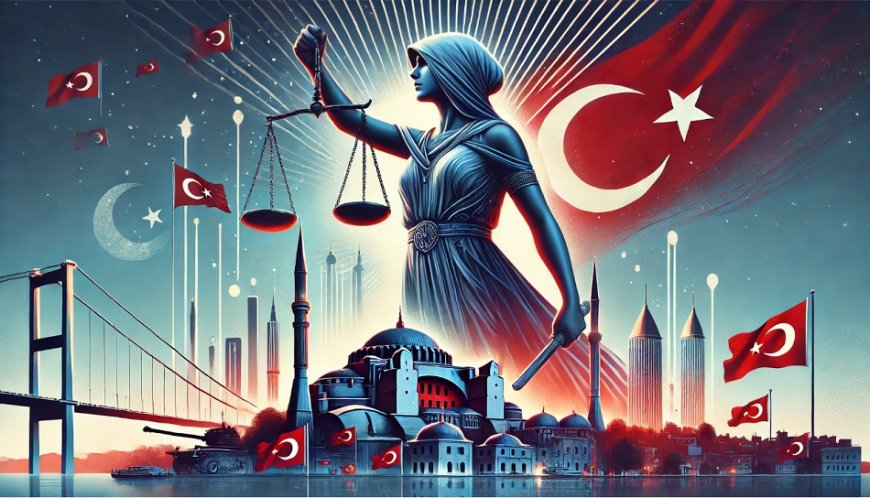8 March: Women in Turkey and the Challenge of Systemic Injustice
International Women’s Day highlights gender equality, but in Turkey, systemic injustice overshadows women’s rights. True equality requires justice, accountability, and broader advocacy beyond symbolic activism.


WRITED BY YUSUF İNAN
8 March: Women in Turkey and the Challenge of Systemic Injustice
International Women’s Day is a moment to reflect on gender equality and women's rights. However, in Turkey, are we facing a gender equality issue, or is there a deeper crisis of systemic injustice affecting society as a whole?
Justice or Gender Equality?
Advocating for gender equality is essential, yet the real issue in Turkey extends beyond gender. The oppression and marginalization women face are symptoms of a broader system where justice does not function effectively. In a society where the rule of law is weak, those with less power—regardless of gender—are the ones who suffer. When justice is absent, inequality is not determined by gender but by the imbalance of power.
The Role of Female Leaders in Systemic Change
Turkey has a significant number of women in law, politics, and business. Yet, their presence alone does not necessarily lead to systemic reform. Do female judges and prosecutors advance women’s rights? Are female politicians actively shaping policies that promote equality? The challenge is not simply increasing the number of women in leadership but ensuring they have the influence to drive meaningful change.
The Upbringing of Girls and the Expectations of Women
As a father of five daughters, I have observed how traditional expectations shape young girls. Many are raised to rely on male support rather than being encouraged to stand independently. In both professional and social settings, gender-based expectations persist, sometimes leading to unequal dynamics. True equality is not about exclusive privileges but about shared responsibilities and opportunities.
Women's Organizations and Broader Justice Issues
Women’s advocacy groups play a crucial role in promoting gender equality, but their activism must be consistent. If fundamental human rights violations—such as children being separated from their fathers or babies living in prison with their mothers—are ignored, the broader struggle for justice is undermined. True advocacy should transcend selective activism and address all forms of injustice.
The Global Responsibility of Women's Rights Advocacy
Women’s rights are a universal issue, not confined to one country. Around the world, millions of women and children are affected by conflict, oppression, and discrimination. The voices of female leaders, activists, and policymakers should extend beyond domestic concerns to advocate for global justice. Addressing gender equality means recognizing systemic oppression in all its forms—whether in war-torn regions, courtrooms, or workplaces.
Moving Beyond Symbolism
Women’s rights must be more than slogans and annual events. True gender equality is not about privilege without accountability but about shared responsibility and equal access to justice. If women seek a stronger role in shaping society, they must advocate for justice in all its dimensions, ensuring that the call for equality is inclusive and transformative.

YUSUF İNAN / PEACE AT HOME, PEACE IN THE WORLD (*)
Twitter : @Yusufinan2023
Instagram : yusufinan2023
Instagram : fondinan2016
Email : [email protected]
Website : www.yerelgundem.com
(*) As Mustafa Kemal Atatürk, the founder of modern Turkey, once said, 'Peace at Home, Peace in the World.' This timeless principle serves as a guiding light for nations striving for harmony, coexistence, and global stability.





















